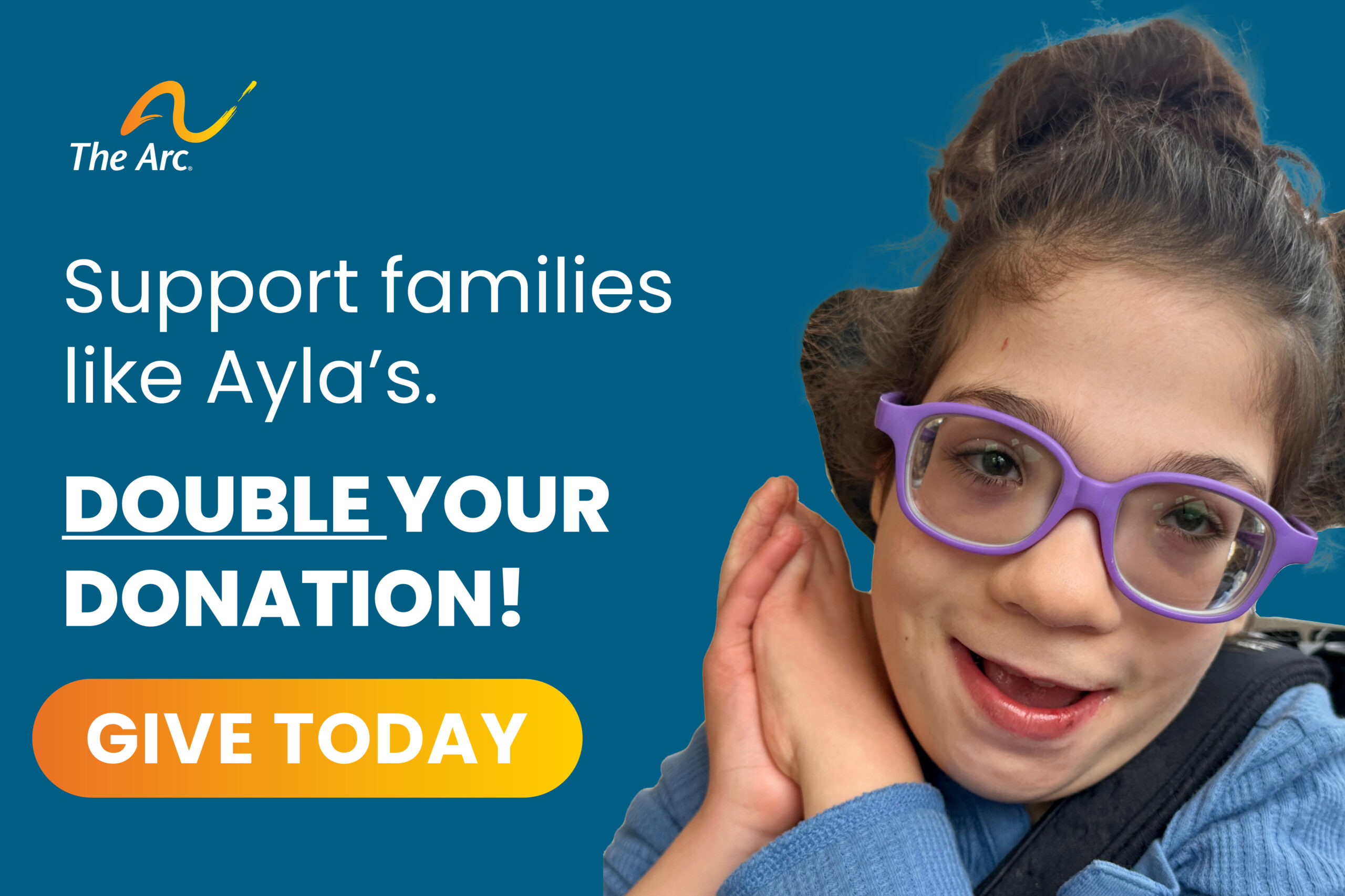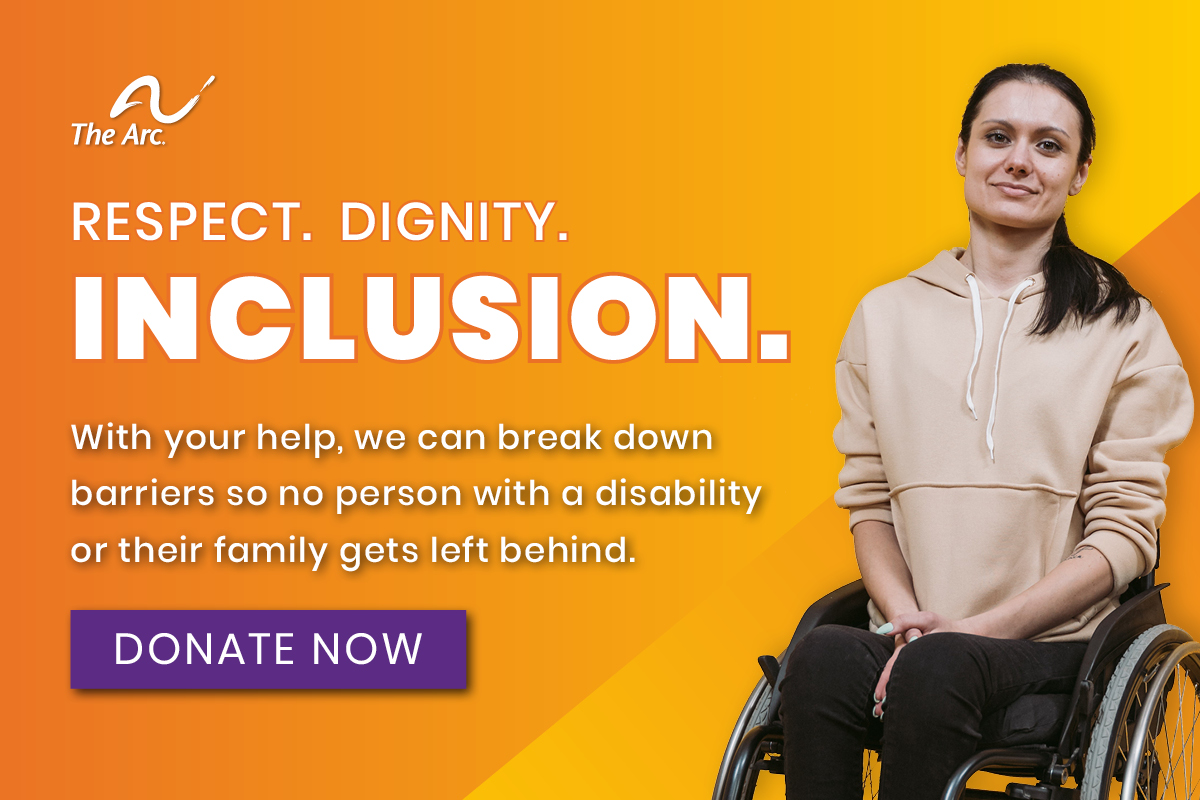For individuals with intellectual and developmental disabilities, there are complexities that impede fairness within the criminal justice system. One complexity is competency to stand trial. Competency measures a defendant’s ability to understand the case against him and assist in his defense. If he is found incompetent, his criminal case cannot be continued until his competency is restored in an in-patient or outpatient restoration program. While actual statistics are scarce, research indicates that many people with disabilities, including autism, do not receive the services they need to be found competent. Instead, they linger in correctional institutions or hospitals for too long, depriving them of their right to a speedy trial. To learn more about criminal competency for individuals with, view The Arc’s National Center on Criminal Justice & Disability’s® latest webinar, “Competency of Individuals with I/DD in the Criminal Justice System: A Call to Action for the Criminal Justice Community.”
First ABLE Programs Launched
 Since the passage of the federal Achieving a Better Life Experience (ABLE) Act in 2014, over 90% of states have enacted enabling legislation, federal agencies have been drafting regulations and issuing guidance, and three new bills have been introduced at the federal level. And, just this month, two states launched the first ABLE programs in the U.S., with more expected in the coming months.
Since the passage of the federal Achieving a Better Life Experience (ABLE) Act in 2014, over 90% of states have enacted enabling legislation, federal agencies have been drafting regulations and issuing guidance, and three new bills have been introduced at the federal level. And, just this month, two states launched the first ABLE programs in the U.S., with more expected in the coming months.
Needless to say, these are exciting times for the financial futures of people with autism, as well as other intellectual and developmental disabilities. To bring you up to speed, The Arc has published a blog outlining those developments, along with a chart detailing states’ progress toward implementation. You can read more about these events here.
Life, Animated: Autism Documentary in Theaters July 1
LIFE, ANIMATED is the story of Owen Suskind, a young man who was unable to speak as a child until he and his family discovered a unique way to communicate by immersing themselves in the world of classic Disney animated films. The film follows Owen as he enters adulthood and takes his first steps toward independence.
The subject of his father Ron Suskind’s New York Times bestseller, Owen was a thriving three-year-old who suddenly and inexplicably went silent – and for years after, remained unable to connect with other people or convey his thoughts, feelings, or desires. Over time, through repeated viewings of Disney classics likeThe Little Mermaid and The Lion King, Owen found useful tools to help him to understand complex social cues and to reconnect with the world around him. Watch the trailer, find a theater near you showing the film, and check out The Arc’s conversation guide to spark dialogue about the film’s topics.
Call for Comments
Request for Public Comments – 2016 IACC Strategic Plan
Deadline: July 29, 2016
The Interagency Autism Coordinating Committee (IACC) wants your input to help identify priority topics for inclusion in the 2016 IACC Strategic Plan for ASD. The new plan will cover research, services and policy issues related to the 7 Questions covered in the IACC Strategic Plan. Click here to submit your comments. The comment period will be open from June 15, 2016 – July 29, 2016. Feel free to share this opportunity with others. The IACC looks forward to hearing from individuals on the autism spectrum, family members, providers, researchers, advocates, and other members of the autism community.
Are You Engaged in Advocacy?
 The future for people with autism will be built on the foundation of how services and supports are structured and funded. Those decisions happen at the local, state, and federal level, and by taking action as an informed advocate you will shape the future of programs like Medicaid and Social Security! Sign up for our Disability Advocacy Engagement email list, and stay connected with federal public policy issues and the issues that matter to you. The action that you take will have a direct effect on your Members of Congress when a critical vote is coming up, or on key pieces of legislation that affect you. Sign up and make sure you check the Email Opt-In box!
The future for people with autism will be built on the foundation of how services and supports are structured and funded. Those decisions happen at the local, state, and federal level, and by taking action as an informed advocate you will shape the future of programs like Medicaid and Social Security! Sign up for our Disability Advocacy Engagement email list, and stay connected with federal public policy issues and the issues that matter to you. The action that you take will have a direct effect on your Members of Congress when a critical vote is coming up, or on key pieces of legislation that affect you. Sign up and make sure you check the Email Opt-In box!
Build Your Plan® – A Tool for the Future
The Arc’s Center for Future Planning® (CFP) supports and encourages people with autism and other developmental disabilities and their families to plan for the years ahead. One of the primary ways the Center accomplishes this is through the Build Your Plan® tool, launched in November 2015. This interactive tool enables families to develop a future plan online. Families can work through the different aspects of future planning at their own pace, receive information targeted to their needs, and connect with resources in their communities. Families can also record their decisions about the future and keep a list of decisions they need to make.
For people with autism and other developmental disabilities and their families, planning for the future is often challenging – but it is also necessary and possible. Start your plan today with the Build Your Plan® tool!
Autism NOW Answer Series #44: Sexuality and Sexuality Instructions for learners with and ASD or other IDD
Here is the forty-second video in our Autism NOW Answer Series, embedded below.
Here is the forty-fourth video in our Autism NOW Answer Series, embedded below. The previous videos can be viewed on our YouTube channel.
Give it a watch and think of what questions about autism and other developmental disabilities you want answered. You can ask us by filling out our simple form. We look forward to your questions!
Be part of an exciting study!
On October 26, 2015 the President’s Committee for People with Intellectual Disabilities (PCPID) published its 2015 Report to the President titled Leveling the Playing Field: Improving Technology Access and Design for People with Intellectual Disabilities. The report describes the critical and increasing role of technology in enabling individuals with intellectual disabilities (ID) to have greater control over their own lives and to experience the full benefits of citizenship. This is perfect timing for adults with intellectual or developmental disability to participate in a unique seven-week study that will learn whether the virtual world platform Second Life can help adults with an intellectual or developmental disability become more self-determined in the physical world.
I am the lead investigator on a study that will investigate whether self-determination in the physical world can be positively influenced by activities in the virtual world Second Life. The study will include 15 adults (18+) across the nation with intellectual or developmental disability who will complete identified activities (described below) in Second Life. A triangulation mixed methods research design will include pre- and post-surveys, field observations and semi-structured interviews. Data will be analyzed to determine support for ongoing research using Second Life to increase self-determination of adults with intellectual or developmental disability.
Participants will be encouraged to complete the study activities as autonomously as possible. Support needs will not preclude an individual from participating. Previous experience in Second Life is not needed. Mentors will be available to participants throughout the study. Individual support needs of participants will be addressed after the selection process.
I am a current PhD student with a focus on disability studies. My research is being conducted through the University of Idaho where I’ve completed my coursework before and since relocating to Northern Virginia. I am currently an Independent Living Program Specialist at the Department of Health and Human Services (HHS), Administration for Community Living (ACL). However, the activities and views expressed by the research related to this project represent the sole views and findings of the researcher and in no way represent the views of the ACL or the United States.
This study has been reviewed and approved by the University of Idaho Institutional Review Board. This includes review and approval of all instruments used during the study and the participant consent form. The purpose of the study is to determine whether self-determination in the physical world can be positively influenced by activities in the virtual world Second Life.
Participants will be asked to complete two surveys, one before the study activities begin and one after the study activities have been completed. These will take approximately 30 to 45 minutes each to complete. Participants will be asked to complete six activities in each of the following subject areas: (1) Second Life orientation on Virtual Ability Island, a monitored environment specifically for people with disabilities, (2) Health and Wellness, (3) a social event, (4) a Second Life field trip, (5) disability awareness and (6) Participant Choice. Activities will relate to the self-determination areas of problem solving, relationships with others and self-awareness. Each activity will take approximately 90-120 minutes. And lastly, participants will be asked to participate in an interview after all activities and final surveys have been completed.
Appropriate steps will be taken to ensure the participant’s identity and all identifiable information will be confidential during and after the study. A participant can end their role in the study at any time without penalty.
Please help adults with intellectual or developmental disability participate in this study by sharing the attached invitation. Participant application will close December 21, 2015. Participants will be notified of their selection to participate in the study no later than December 23, 2015. The study will conclude no later than February 21, 2016.
Sensory Processing and ASD
Sensory Integration or Sensory Processing Disorder: What’s that? To find out more, watch this video as it will explain what it is and how it is related to ASD.
Autism NOW Answer Series #43: Dating and ASD
Here is the forty-third video in our Autism NOW Answer Series, embedded below. The previous videos can be viewed on our YouTube channel.
Give it a watch and think of what questions about autism and other developmental disabilities you want answered. You can ask us by filling out our simple form. We look forward to your questions!



